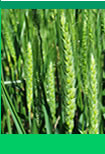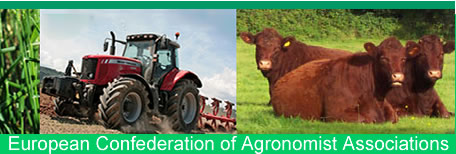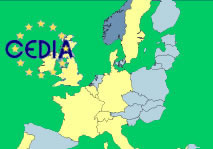| |
Presentation
of CEDIA
CEDIA - the
Confederation of European Agronomist Associations - is the umbrella
body, which represents professional agronomists associations in
Europe.
It was founded
on 23 June 1987, following an initiative by national agronomists
attached to the European Institutions in Brussels
On 13th October
1996 CEDIA became an official non-profit organization.
CEDIA - Operational organisation
(see statutes also):
The General
Assembly, which is held annually, is composed of representatives
of each member association.
The General
Assembly decides on CEDIA policy, strategy, and budget, and elects
the members of the board and the president.
The Board consists
of a president, 2 vice presidents, a treasurer and other members;
each country has a representative on the board.
The Board executes
the working programme and daily activities, assisted by the general
secretary. It creates working groups for specific tasks and maintains
and develops contacts with all relevant external bodies and persons.
CEDIA’s aims and objectives:
Cedia is primarily
interested in the ensuring that mankind has an adequate supply of
wholesome and safe food and agri related products through the application
of efficient, safe and sustainable methods. This is achieved by:
- ensuring
the optimum professional input to the sector through the continuous
development and application of agricultural sciences and engineering
and
- ensuring
the optimum economic environment for the Agricultural sector through
promoting the most appropriate agriculture and food policies.
Particular
aims are to promote:
- Interests
of its members - university graduates and graduates of specialised
schools (e.g. France) in agronomy and in related sciences and
engineering.
- Networking
and exchange of information in the broadest sense among its members,
member associations, and other relevant interests.
- Advancement
of university, and post-university education, research and training,
and the continuous professional development of its members.
- Cooperation
in promoting and developing job and career opportunities for its
members.
- Continued
European integration through expanded and increased membership,
and collaboration between its members and member associations.
- Increased
collaboration between Agronomists and agronomist association’s
world wide.
- The sustainable
production of safe and wholesome food, the protection and conservation
of the environment, and world food security.
- Awareness
at European and World level of member and member organizations’
contribution, roles and functions, in today’s society
CEDIA:
Main activities:
- Lobbying
and liaison with EU, Governments and Industry, thereby supporting
for example:
- The Professional
interests of members,
- The Promotion
of the role, the expertise, opinion and viewpoint of professional
Agricultural Scientists and Engineers in government and civil
society,
- The
advancement of economic, technical, social development and
status of agriculture and related sectors in the economy.
- Liaison
with universities and other educational institutes to ensure that
the quality and scope of agricultural science and agricultural
engineering, training and education, meets the ongoing requirements
of the profession and the sectors serviced.
- The continuous
professional development of members is facilitated and promoted.
- Further
development and greater integration of member association’s
career/job services programmes
- Exchange
on information on employment and career opportunities in European
countries and elsewhere
- Organisation
of conferences and seminars on topics of interest to the members
and the profession
- Provision
of networking/educational/job experience opportunities for young
graduates and for established agronomists
- Creation
of awareness on ethical issues.
- Transnational
cooperation re Community programs
|


